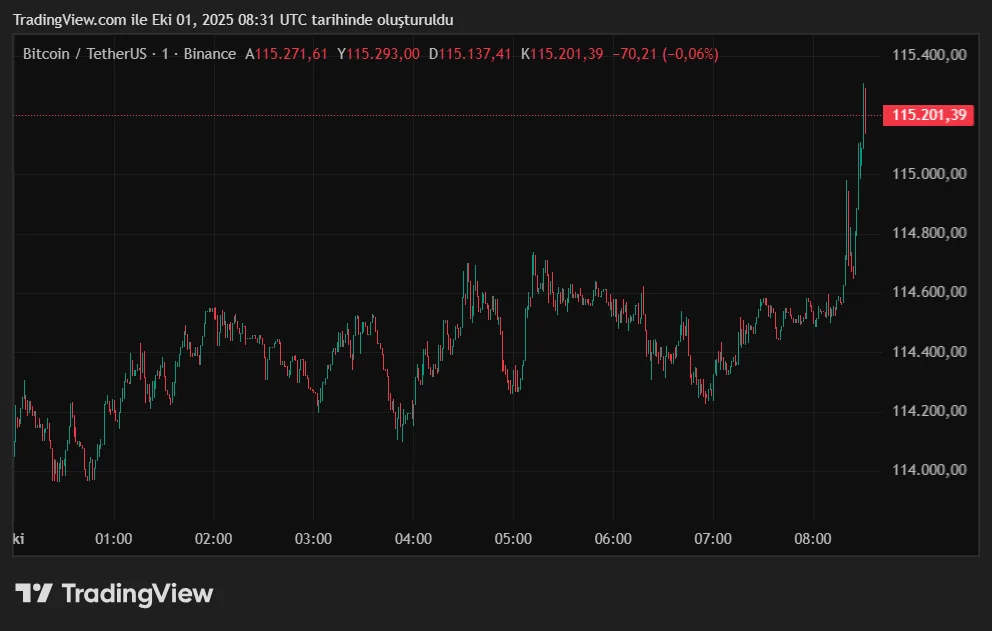The US government has officially shut down due to an unresolved budget crisis. Weeks of negotiations between Republicans and Democrats have failed, and federal funding has been cut off as of midnight (6:00 a.m.) on Tuesday, September 30th. This development has created significant uncertainty not only for public services but also for financial markets.
The White House Office of Management and Budget confirmed the shutdown in a statement released overnight. The statement alleged that Democrats were responsible, stating, "The duration of this unsustainable stance is uncertain, making it difficult to predict the duration of the shutdown." The Trump administration blames Democrats for the shutdown, while the opposition blames Republicans' failure to back down on health and social security policies as the cause of the crisis.
Approximately 800,000 federal employees are expected to be furloughed. Essential services like border security, emergency medical services, air traffic control, and law enforcement will continue to operate. However, national parks, food inspections, student loans, research centers, and some social assistance programs will face cuts. As in previous shutdowns, some employees will be furloughed, while others will continue working without pay.
Crypto ETFs in limbo
It seems inevitable that this shutdown will impact the crypto markets. The U.S. Securities and Exchange Commission (SEC) accelerated the approval process for spot crypto ETFs in recent weeks. The individual review system previously used for Bitcoin and Ethereum ETFs was eliminated, replaced by "general listing standards." This change had led to expectations that popular altcoin ETF applications like Solana could be approved in October.
However, with the government shutdown, the relevant divisions of the SEC suspended their operations. According to the SEC's published operating plan, the review of new applications, requests for comment, and no-action decisions will be suspended during the shutdown. Bitwise Investment Director Matt Hougan stated, "No approvals will be issued during the government shutdown," while Jason Allegrante, chief legal officer at Fireblocks, emphasized that this is a temporary disruption: "The demand is not going away. The process will resume when Washington reopens." US President Donald Trump, in a statement following the shutdown, blamed Democrats and declared, "We will not back down from this crisis." While the Trump administration has not yet provided a specific timeframe for how long the shutdown will last, past examples indicate that shutdowns have lasted an average of eight days.
Nevertheless, a prolonged period could also put financial markets under pressure. Major crypto assets like Bitcoin and Ethereum are expected to experience particularly volatility, while the altcoin market could see sharper movements. Delays in the ETF approval process could also cause investors to reshape their short-term strategies.
The Latest on Bitcoin and Altcoins
The crisis in Washington has triggered rapid volatility in crypto markets. Market data at the time of the shutdown was as follows:
- Bitcoin (BTC): $115,167.64
- Ethereum (ETH): $4,147.69
- XRP: $2.85
- BNB: $1,010.32
- Solana (SOL): $210.18
- DOGE: $0.23355
- TRX: $0.3344

Bitcoin price remained positive or stable immediately after the shutdown announcements, but assets like Ethereum and Solana experienced sharper sideways or slightly negative movements. Previous government shutdowns in the US present different scenarios for the crypto market:
- In 2013, during a 16-day government shutdown, Bitcoin rose approximately 14%.
- However, during the longest lockdown, which lasted 35 days between 2018 and 2019, the BTC price was relatively bearish: it fell approximately 6%, from 3,802 to 3,575.
These historical examples demonstrate that crypto markets do not follow a fixed direction during lockdowns. In some cases, upward pressure is generated, while in other periods, declines can occur due to risk perception.




